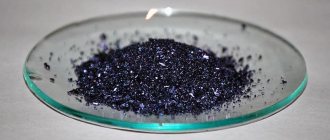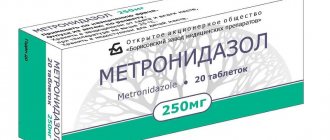Dexamethasone is often used to treat a huge number of diseases; its benefits and harms are known to all specialists, but an overdose can lead to unforeseen consequences.
Intoxication of the body occurs abruptly without additional problems. The human body is designed in such a way that a reaction to all possible stimuli can appear suddenly. For some, the real problem was poor nutrition, which resulted in severe intoxication, while others often encounter chemicals.
One of the most dangerous intoxications is drug poisoning. It seems that medications should relieve unpleasant symptoms, but in fact, excess dosage, individual intolerance or other reasons can cause acute poisoning and the development of a huge number of pathologies.
Dexamethasone is often prescribed by specialists to treat inflammation and infections of various types. In this case, swelling is significantly reduced, the risk of developing side diseases is significantly reduced, and the victim returns to a normal state. Despite the fact that the beneficial effects of this medicine are obvious, there are cases of extremely negative effects of the drug on the body.
Information about the drug
The medicine belongs to the group of synthetic corticosteroids. It has powerful immunosuppressive activity. Shows anti-edematous, anti-inflammatory and desensitizing properties. The anti-inflammatory effect of the drug is 7 times stronger than Prednisolone and 35 times more effective than Cortisone.
The mechanism of action of dexamethasone is based on blocking the release of inflammatory mediators, reducing the permeability of vascular walls, stimulating the production of lipocortins that prevent edema, and reducing the production of mast cells. Dexamethasone affects metabolic processes, in particular, it affects protein catabolism, increases the production of glycogen in the liver and reduces glucose consumption by tissues.
After injection of the drug, the highest concentration in the blood plasma is detected after an hour. The therapeutic concentration of dexamethasone lasts up to 2 days, depending on the age and weight of the patient. Metabolites of the drug are excreted in bile and urine.
Existing forms:
- pills;
- solution for IM and IV administration;
- eye drops.
The drug is rarely used independently, mainly as part of complex therapy. In the form of tablets and injections, it is used only in a hospital setting under the supervision of medical staff.
Indications
Due to its pronounced anti-inflammatory, anti-shock, anti-allergic, anti-toxic and anti-edema effects, Dexamethasone is used in the treatment of many serious diseases.
But the drug affects all organs and systems, has strict and relative contraindications, and is therefore dangerous when self-medicated. If taken incorrectly, an overdose of the drug is possible, the consequences of which are sometimes irreversible.
Range of applications:
- cancer diseases;
- endocrine pathologies;
- states of shock;
- diseases of the respiratory system;
- pathologies of hematopoietic organs;
- congenital adrenal hypoplasia;
- rheumatoid and autoimmune diseases;
- allergic diseases, angioedema.
Dexamethasone injections are also used for differential diagnosis of tumor diseases. But, of course, not a single potent drug is completely safe to use.
Side effects
Dexamethasone has a stronger effect on the gastrointestinal mucosa than other drugs in this series, disrupts the function of the adrenal glands and upsets the nervous system. The side effects of the hormonal drug are numerous and quite serious. In case of overdose, they can lead to severe intoxication.
Side effects:
- depression of cardiac activity;
- damage to muscles and bones due to loss of calcium salts;
- impaired eye function;
- damage to the central nervous system;
- gastrointestinal disorder;
- suppression of hormonal system functions;
- exacerbation of infectious and inflammatory processes;
- impaired immune defense.
All these negative effects occur when the dosage is incorrectly selected, diagnostic errors, or self-medication in excess of the maximum daily amount of the drug. Only a doctor can determine the correct dosage, frequency of use and assess possible risks.
Contraindications
When prescribing Dexamethasone, individual intolerance and the presence of concomitant pathologies are taken into account. In addition, the doctor assesses the state of health and the course of the underlying disease. Patients who have absolute contraindications are prescribed an analogue or do not use hormonal drugs at all.
List of contraindications:
- heart diseases;
- viral and fungal infections;
- diabetes;
- gastrointestinal pathologies;
- allergic reactions.
Dexamethasone is usually not used during pregnancy. The exception is situations when the expected benefit outweighs the possible risk to the embryo. Self-medication during pregnancy is very dangerous, as it can lead to overdose, malformations and intrauterine death of the fetus.
Dexamethasone tablets - what they help with and how to take them, contraindications and price in pharmacies
If a person has health problems, he immediately turns to pharmacological agents, so each of us must have a good understanding of what one or another of them is intended for.
For example, Dexamethasone tablets have several areas of application, in addition, this medicine has many analogues.
Read about the cases in which this drug can be prescribed, how it acts on the body and what substances it contains.
The drug belongs to the category of synthetic glucocorticoids. Available in tablets, eye drops, ampoules. The trade name and international nonproprietary name (INN) in the register of medicines (RMN) are the same - Dexamethazon. The medicine is intended to regulate carbohydrate, protein and mineral metabolism. The pharmacodynamics of tablets are characterized by the following actions:
- anti-inflammatory;
- antitoxic;
- desensitizing;
- immunosuppressive;
- antiallergic;
- anti-shock.
One flat round white tablet contains 0.5 mg of the main active ingredient - dexamethasone. They are packaged in 10 pieces in blisters or vials made of darkened glass. In addition, each Dexamethasone tablet contains the following auxiliary components:
- lactose monohydrate;
- colloidal anhydrous silica;
- corn starch;
- talc;
- povidone;
- magnesium stearate.
Indications for use
Dexamethasone can be prescribed for a huge number of diseases, divided into several groups. The tablets help against the following types of acute and chronic diseases of the musculoskeletal system:
- gouty and polyarthritic joint damage;
- epicondylitis;
- polyarthritis;
- rheumatism;
- synovitis;
- osteoarthritis;
- tenosynovitis;
- osteochondrosis;
- humeroscapular periarthritis;
- bursitis;
- ankylosing spondylitis;
- juvenile arthritis.
The hormone Dexamethasone can be prescribed for the following systemic connective lesions:
- rheumatoid arthritis;
- systemic lupus erythematosus;
- periarteritis;
- scleroderma;
- dermatomyositis.
If a person has a cold or allergies and has difficulty breathing due to increased mucus production, the doctor may also prescribe Dexamethasone or substitutes. Other tablets are prescribed for the following skin diseases:
- pemphigus;
- contact, toxic, seborrheic, bullous herpetiformis, exfoliative, atopic dermatitis;
- psoriasis;
- malignant weeping erythema.
Eye pathologies for which tablets are prescribed:
- allergic corneal ulcers;
- inflammation of the optic nerve;
- allergic conjunctivitis;
- indolent uveitis.
Tablets are prescribed for the following diseases of the hematopoietic system:
- erythrocyte, hypoplastic, erythroid, autoimmune hemolytic anemia;
- thrombocytopenic purpura;
- agranulocytosis;
- acute leukemia;
- lymphogranulomatosis.
Other diseases that can be treated with Dexamethasone tablets:
- congenital proliferation of the adrenal cortex;
- different types of cerebral edema;
- differential diagnosis of hyperfunction and tumor process of the adrenal cortex;
- elevated calcium levels;
- autoimmune kidney damage;
- prevention of implant rejection during transplantology;
- nephrotic syndrome;
- hepatitis;
- sarcoidosis;
- enteritis;
- fibrosis;
- Crohn's disease;
- acute alveolitis;
- ulcerative colitis;
- pulmonary forms of tuberculosis;
- multiple sclerosis;
- lung tumors;
- aspiration pneumonia.
According to the annotation, the tablets should not be used for:
- under 6 years of age;
- hypersensitivity to the components of the tablets;
- liver cirrhosis;
- stomach or duodenal ulcer;
- chronic hepatitis;
- osteoporosis;
- pregnancy, lactation;
- acute viral, fungal, bacterial infections;
- active form of tuberculosis;
- Cushing's syndrome;
- sore throat;
- esophagitis;
- acute psychosis;
- polio;
- some heart diseases;
- severe arterial hypertension;
- obesity 3-4 degrees;
- severe renal failure.
For oncology
As a rule, for some types of cancer, Dexamethasone can be prescribed to improve the patient’s general condition, as part of complex therapy. The tablets have relatively few side effects.
Dexamethasone for oncology should be taken 7.5-10 mg per day. Taking pills is allowed only as prescribed by a doctor. It is preferable to be hospitalized at an oncology clinic during the admission period.
For bronchitis
Sometimes a drug is prescribed for this disease, but not in tablets. Dexamethasone for bronchitis and exacerbations of bronchial asthma is used in ampoules by inhalation.
It helps prevent bronchospasm and relieve severe coughing attacks. 0.5 ml of medication is diluted in 2-3 ml of saline solution. Inhalation of the resulting product is given to adults and children three times a day for a week.
This allows you to significantly alleviate the patient’s condition in a relatively short period of time.
For conjunctivitis
The drug is prescribed for many eye diseases, but not in tablets, but in drops. for conjunctivitis and other acute inflammations, treatment lasts two days. 1-2 drops are dropped into the eyes 4-5 times a day.
If the disease is chronic, the course of treatment lasts from three to six weeks. In this case, 1-2 drops of Dexamethasone are instilled into the eyes twice a day.
If the medicine gets on the cornea, a burning sensation is possible, which quickly passes, but this phenomenon is not considered a side effect.
Dexamethasone analogs
Drugs with similar properties have a similar effect:
- Megadexane;
- Dexazone;
- Dekatron;
- Fortecortin;
- Dexaven;
- Pharmadex;
- Oftan Dexamethasone;
- Dexamed;
- Maxidex;
- Dexamethasonelong;
- Dexon;
- Medexol;
- Dexacort;
- Dexapos;
- Dexafar.
Price for Dexamethasone tablets
You can purchase the drug only if you have a doctor's prescription. You can buy Dexamethasone at any pharmacy.
In addition, the tablets are presented at affordable prices in the catalogs of specialized online stores that sell medicines.
How much Dexamethasone costs depends on the form of release, the number of tablets, and the manufacturer. The price of a blister for 10 pieces in Moscow varies from 18 to 45 rubles.
Features of taking Dexamethasone in children
The use of Dexamethasone in a child is permissible in extreme cases when it can significantly affect the course of the disease. But the amount of the drug and the frequency of its use are determined only by a specialist, focusing on weight and age.
In this case, the child is under control throughout the treatment, his development and health status are monitored, and if there are visible violations, the drug is immediately stopped.
Symptoms of Dexamethasone overdose in children are more pronounced and have serious consequences. Therefore, the drug should be stored in places inaccessible to children, and used only as prescribed by a doctor.
Lethal dose of hormone
Deaths from a dexamethasone overdose are very rare because it is generally used in large doses only in hospital settings. Maintenance doses of the drug in tablets taken at home are not life-threatening. The exception is rare cases of deliberate use of a large number of tablets, or accidental use by children.
A single dose for adults exceeding 50-60 mg and a daily dose exceeding 80 mg can be life-threatening due to the development of complications. For a child, a dose of 20-25 mg may be more dangerous.
Dexamethasone dosage
It is known that a single dose of Dexamethasone, even if it exceeds the permissible daily amount of the drug, usually does not lead to serious poisoning.
But if a hormonal drug is used in an increased dosage for a long time, intoxication will develop. How many tablets can you take without harm? The daily dose should not exceed 3 mg in adults, in severe cases up to 9 mg.
Maximum dosage of Dexamethasone:
- 2 ml of 0.4% solution for injection;
- 9 mg tablets, divided into 2-4 doses;
- 10 drops in one eye for no more than 5 weeks.
In children, the norm is lower:
- 0.02 mg/kg body weight 3 times/day;
- in severe cases – 0.3 mg/kg 3 times/day.
If a single or daily dosage is exceeded, dexamethasone poisoning occurs. In this case, detoxification is carried out, gastric lavage is performed and sorbents are prescribed.
Overdose
Symptoms of overdose of this drug should be known to everyone who is prescribed treatment with this drug. This information is necessary at least in order to promptly detect excess of the permissible amount of medication and avoid unpleasant consequences for the body.
Signs of an overdose directly depend on the amount of the substance taken and the nature of the disease for which it is used, and can be as follows:
- Disorders of the central nervous system, including confusion, psychosis for no apparent reason, increased excitability, causeless anxiety and disorientation in space and time.
- Problems in the functioning of the cardiovascular system, including a sharp increase in blood pressure, tachycardia and even heart failure.
- Increased intracranial pressure and convulsions accompanying this symptom in the limbs or throughout the body.
- Allergic reactions manifested by skin rashes.
- Severe nausea, possible vomiting.
Exceeding the permissible amount of the drug once will not bring any serious consequences to the body. In this case, it is important to detect the problem in a timely manner and adjust the treatment. To do this, you need to not only stop taking the drug for a certain period of time, but also tell your doctor about your symptoms.
Video: Dexamethasone for joint pain.
Poisoning in animals
Dexamethasone is used in animals for shock, allergies, severe respiratory diseases, etc. But the potent drug often produces serious side effects, including cerebral hemorrhage and death of the animal.
The hormonal drug should not be used in animals that are bearing offspring or are severely weakened by disease. How to choose a dosage so as not to cause intoxication?
Average amount of drug:
- in cats and small dogs - about 0.3-0.5 ml;
- in dogs of medium and large breeds - 0.5-1 ml.
For some diseases, a single dose of the drug is used that is several times higher than the average daily dose. Self-prescription of a hormonal drug is fraught with overdose. It is justified only in cases where first aid is needed and without it the animal may die. If the dose is exceeded once, there are usually no serious consequences.
You will like the article: “ The most deadly poisons for humans .”
Acute conditions are treated with intravenous, subcutaneous or intramuscular administration of the drug. This allows you to quickly introduce the medicine into the animal’s body and prevent further deterioration of the condition.
Contraindications
Dexamethasone is prescribed with caution to patients with a history of allergic reactions, fungal and viral infections. It is not recommended to take it for diseases of the cardiovascular system, stomach and diabetes. For diseases such as osteoporosis, psychosis, glaucoma, renal or liver failure, dexamethasone can be prescribed only after a thorough examination of the patient by a doctor.
During pregnancy, people try not to prescribe dexamethasone. Taking the drug can only be justified if the expected benefit to the female body is greater than the harm to the fetus.
First aid and treatment
If an overdose of dexamethasone has occurred recently (no more than 0.5-1 hour), then it is advisable to perform gastric lavage.
This works when a single large dose of the drug is taken orally. In this way it is impossible to eliminate the consequences of prolonged excess dosage. Sequencing:
- Give the victim 3-4 glasses of warm, clean water (or with a small amount of salt added). Induce a gag reflex by pressing on the root of the tongue.
- After 2-3 stomach cleanses, give any enterosorbent (Enterosgel, Atoxil, Smecta, Polysorb). Dilute it with water according to instructions or wash it down.
- Put her to bed and give her water to drink in small sips every 15-20 minutes. While waiting for an ambulance, monitor your condition.
In case of Dexamethasone intoxication, timely first aid is important, since the drug has a powerful systemic effect on the body. Inaction in case of dexamethasone poisoning is very dangerous, since irreversible consequences are possible.
Intravenous (parenteral) administration
In the case of administration of the drug, in which it bypasses the gastrointestinal tract (parenteral administration), the metabolic rate increases, and therefore the period of pharmacological action of Dexamethasone is shortened. Elimination after injection is similar to oral administration. It is believed that Dexamethasone is eliminated from the body within 72 hours .
Consequences
The most severe complications of hormonal intoxication are cerebral edema, heart attack, stroke, acute kidney, liver or heart failure, and hypertensive crisis. An overdose of Dexamethasone is fraught with the development of long-term consequences.
Possible violations:
- hypertension;
- depression, headache, weakness, sleep disturbances;
- obesity, carbohydrate metabolism disorders;
- development of osteoporosis;
- sexual weakness and testicular hypotrophy in men, hirsutism in women;
- skin lesions, pustules, age spots, worsening wound regeneration.
Most often, with a long-term overdose of the drug, hypercortisolism develops with disturbances in carbohydrate, fat and electrolyte metabolism, kidney inflammation, the appearance of secondary immunodeficiency, and mental disorders. Since the hormone affects all organ systems, the patient’s appearance changes: obesity, osteoporosis, acne, and facial hair appear. Treatment of Itsenko-Cushing syndrome is long-term with the use of the drug Mamomit or surgical method (removal of one adrenal gland).
Deaths from Dexamethasone poisoning are very rare. They are associated with the ingestion of large quantities of tablets (most often by children). For a child, the dangerous dose is 20-25 mg, for an adult – 50-60 mg.
What is withdrawal syndrome
Dexamethasone is usually associated with spinal disorders. Treatment can be long-term, as a result of which the body gets used to constantly receiving the necessary hormonal substance from the outside. Human organs begin to produce less of the necessary hormones, and their functionality is completely exposed to the supply of hormones through pills.
When Dexamethasone is discontinued, the patient's well-being deteriorates sharply . In such a case, it is very important to draw the right conclusions and seek help from a doctor. The drug should be taken only in the prescribed dose. It is important to avoid overdose.
Dexametosan withdrawal syndrome is characterized by:
- fluctuations in blood pressure;
- depression;
- nausea;
- exacerbation of inflammation.
Taking Dexamethasone reduces the production of endogenous corticosteroids. If you stop taking the drug abruptly, the body will not have time to adapt to the new ratio of hormones. Health problems begin that require the introduction of additional therapy. The human body perceives hormonal imbalance very critically, so withdrawal syndrome is inevitable in most situations.
Video: instructions for use of the drug
Read further:
Surgical instruments. Scalpels, surgical knives and their varieties
Myths and facts about colds
Herbal remedies and treatment of attention deficit disorder without drugs
Disinfectants and antibacterial agents: how do they work and how to use them?
Can botulism be killed by boiling?
Article rating:
( 1 ratings, average: 5.00 out of 5)
Share with friends:
You may also be interested in:
Overdose of iodomarin during pregnancy and in children - symptoms and consequences
Overdose and poisoning with azaleptin - lethal dosage for humans
Overdose and digoxin poisoning: consequences
Tubazide poisoning of dogs and people - symptoms and consequences
Indications
- conjunctivitis (non-purulent and allergic);
- keratitis;
- keratoconjunctivitis (without damage to the epithelium);
- blepharitis;
- scleritis;
- episcleritis;
- chorioretinitis;
- uveitis;
- blepharoconjunctivitis;
- optic neuritis;
- sympathetic ophthalmia;
- prevention and treatment of inflammation after surgery and trauma;
- restoration of corneal transparency and reduction of neovascularization after keratitis,
- burns.
Adverse reactions
Glucocorticosteroids are used to treat rashes. But the latter can also be a side effect of these drugs. Other undesirable effects accompanying treatment with Dexamethasone are increased blood pressure, increased tachycardia and tachypnea. Patient behavioral disturbances are common, but they must be identified with encephalopathy due to cancerous intoxication of neurons. The main side reaction is a powerful decrease in the immune response and an increase in the incidence of intercurrent viral and bacterial infections in patients.
special instructions
The drug is intended for topical use only. Should not be used for intraocular injection.
The drug should be shaken before use.
If there is no improvement after 3-4 days of treatment, additional local or systemic treatment should be prescribed.
The drug contains the antimicrobial preservative benzalkonium chloride, which can be adsorbed by soft contact lenses. Therefore, the drug should not be used while wearing soft contact lenses. It is necessary to remove the lenses before using the drug and install them no earlier than 15 minutes after instillation.
When using the drug in combination with other ophthalmic drops, it is necessary to maintain an interval between instillations of at least 15 minutes.
Treatment with the drug may mask the picture of a bacterial or fungal infection, therefore, when treating infectious eye diseases, the drug should be combined with adequate antimicrobial therapy.
Dexamethasone may cause a false positive drug test result.
Impact on the ability to drive vehicles and operate machinery
Taking into account the possibility of lacrimation after instillation of the drug, it should not be used immediately before driving vehicles or working with machinery. Within 30 minutes after instillation of the drug, you must refrain from activities that require increased attention.











